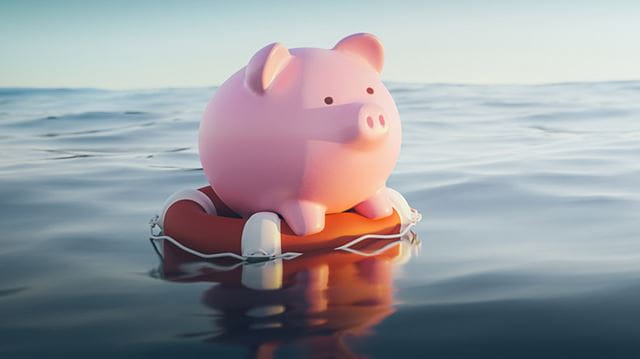
BBC Money Box expert Paul Lewis offers some tips designed to help if your financial situation has taken a hit in the last few months
The COVID-19 (coronavirus) global pandemic is like no other crisis present generations have seen. But the effect on individual finances is very similar to other major personal blows – losing your job, getting a serious illness or getting divorced. And the steps to be taken during the event and after it is all over are similar, too.
Perhaps the top lesson to learn is that it could all happen again, so it’s sensible to make yourself financially resilient. More on that later. But step one is put yourself and your finances back together.
Manage your debt
Many people have run up debt due to losing their job, living on reduced pay or spending more on keeping everyone at home 24/7. Yes, banks and others were told to let everyone have a three-month payment holiday on credit cards and loans – however, the problem is that interest was still charged. So if you had a credit card with a debt of, say, £2,000 and an interest rate of, say, 24.9% on it, you would pay interest in the first month and the next month you will pay interest on that interest and so on. At the end of the three months, instead of your debt having been reduced, it would rise. That extra debt needs to be paid off. And those figures don’t take account of extra spending on the card.
One answer is to apply for a card with a 0% balance transfer deal. Move the money to the new card – cut the new card in half so you do not use it – and pay it off over the zero-interest time, which is generally up to two years and sometimes longer. There’s usually a small one-off fee involved but it’s much less than the interest that you’d pay on the original card. This requires discipline, but it’s a good way to get rid of an unwanted debt.
If you need to borrow, never use your overdraft because once the coronavirus free overdraft ends, the charges will be double those on a credit card. And don’t use a credit card unless it is one you have chosen for a low – preferably zero – interest rate for a while. Much better to find your local credit union and see about getting some reasonably priced borrowing from them. Credit unions offer great lending rates. If debt is causing you stress, contact the free debt charities Step Change or National Debtline.
• Coronavirus: all your personal finance questions answered
Curb your spending
To avoid racking up more debt, look at your outgoings. It is a sad fact that many firms rely on our inertia about not cancelling things. Go through your bank and credit card statements item by item and ask what each one is. If there are recurring payments for subscriptions or other things that you had forgotten about or can now do without – and remember, this is a crisis – then stop them now. You may be surprised how much they add up. Just tell your bank or credit card provider to stop these ‘continuous payment authorities’. It must do so at once. If it does not, then it will have to reimburse you. After that you can track down the firm to let it know.
• Can you trust challenger banks? Read our lowdown
Plan for the future

The next step is to future-proof your life. Millions have been furloughed on 80% of their pay. Millions more have lost their jobs. Many self-employed people have had little or nothing from the self-employment scheme. Make sure you are claiming the benefits and grants that you are entitled to. Find a way to put aside a certain amount each month into a savings account. Call it your Lifesaver or Emergency or even Pandemic account. Get into the habit of saving.
Boring as it may seem, get into the habit of checking the interest rate the account pays you, too. These have been falling – some to almost nothing. So it really is worth your while to check every six or 12 months how your money is doing and move it to a better account if yours has fallen out of the top five. I use the comparison site Savings Champion, which is accurate, up to date and impartial. It does make money from some savings providers if you click on their links but that never affects its recommendations. Find the best buys and make sure there aren’t conditions on taking your money out.
• Should you take annual leave now or wait? Read our advice
Think differently
I bet if you looked at your credit card or bank statement for the months before the COVID-19 (coronavirus) crisis and compared it with those during the crisis, you would see very different items. Look at the things you bought before the crisis that you didn’t need – and swear to yourself you will never buy them again. Put that money into the savings account instead. You will feel better. And you’ll be better prepared next time.
Get free financial advice from Lighthouse
Boundless members can get a no-obligation, complimentary consultation worth £150 that may be especially helpful right now. To find out more, click here. Terms and conditions apply.

